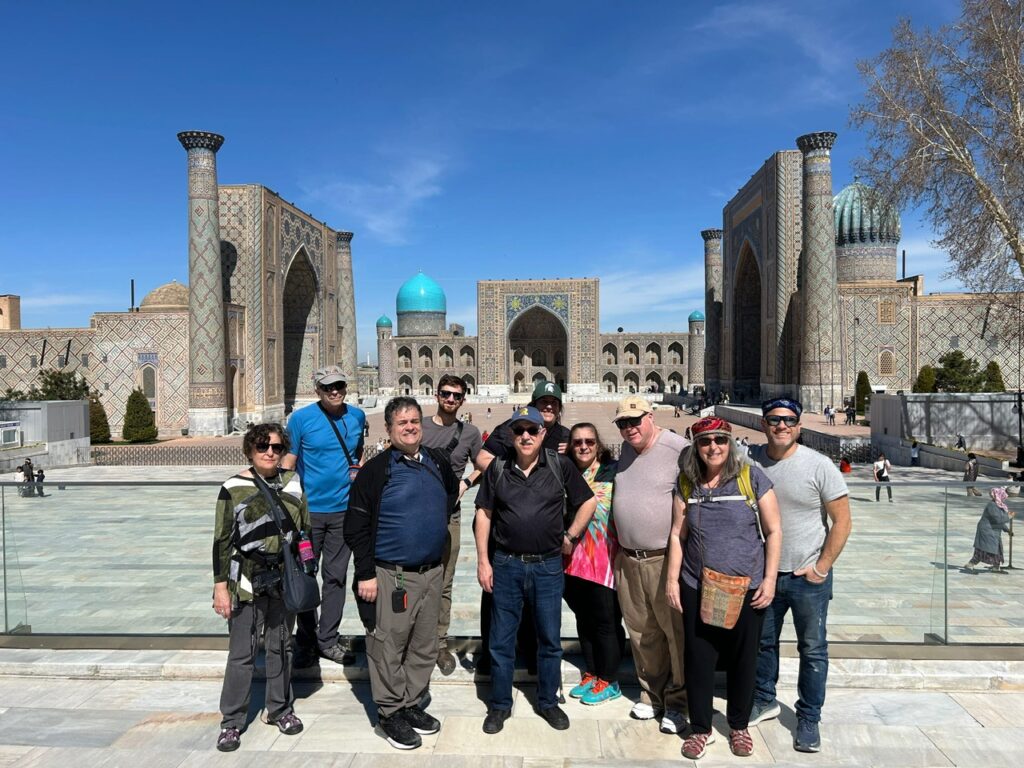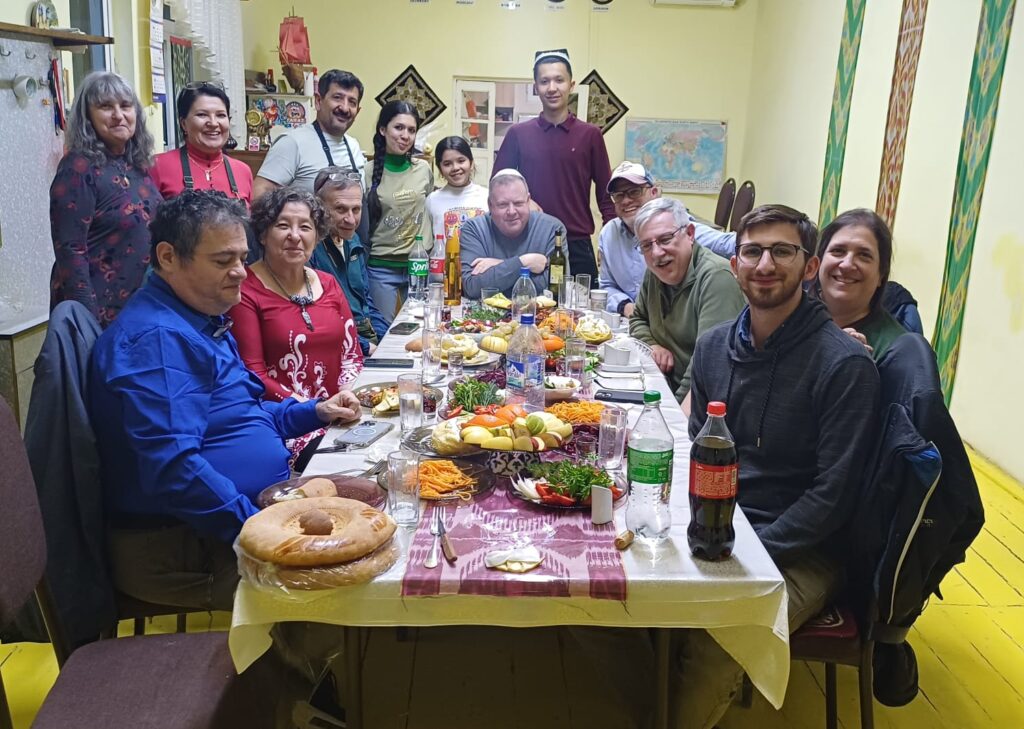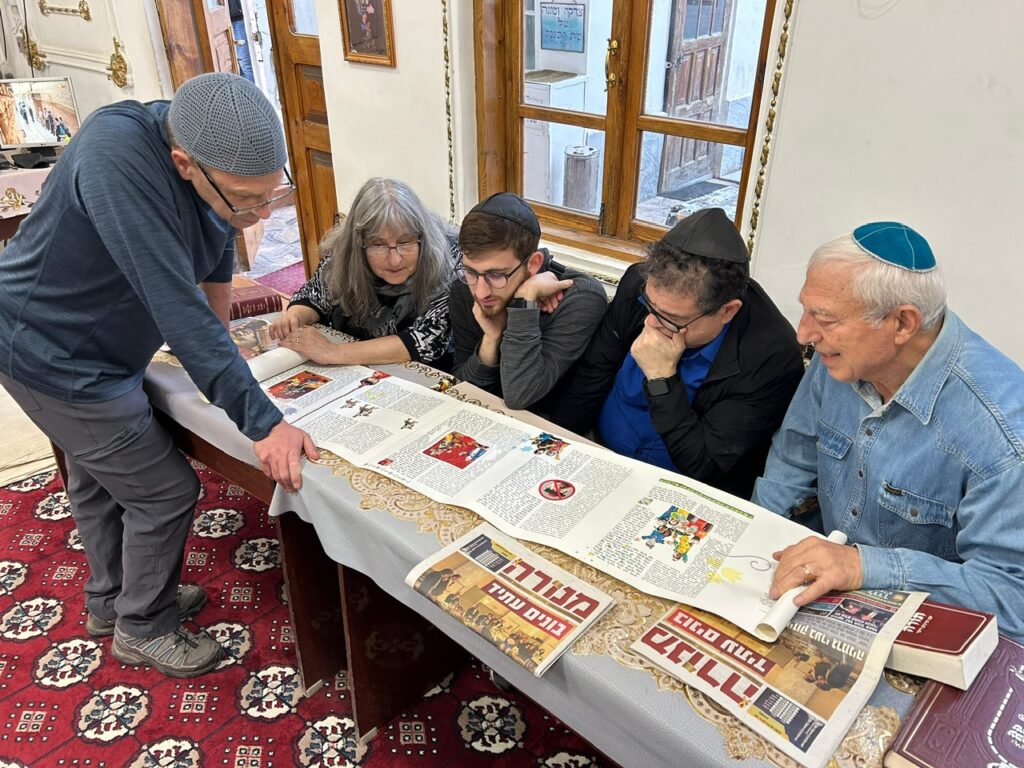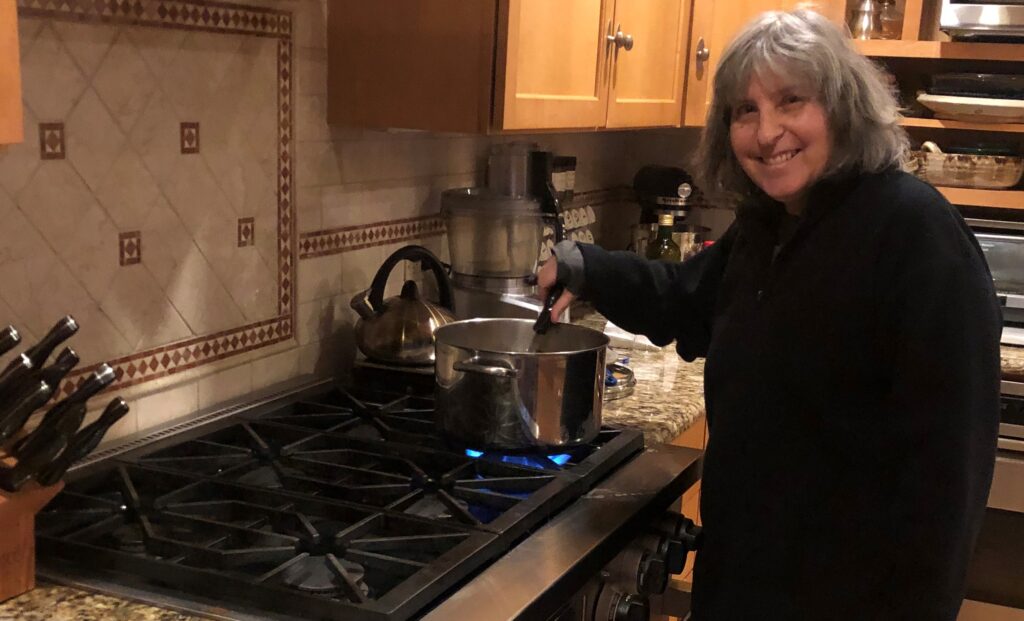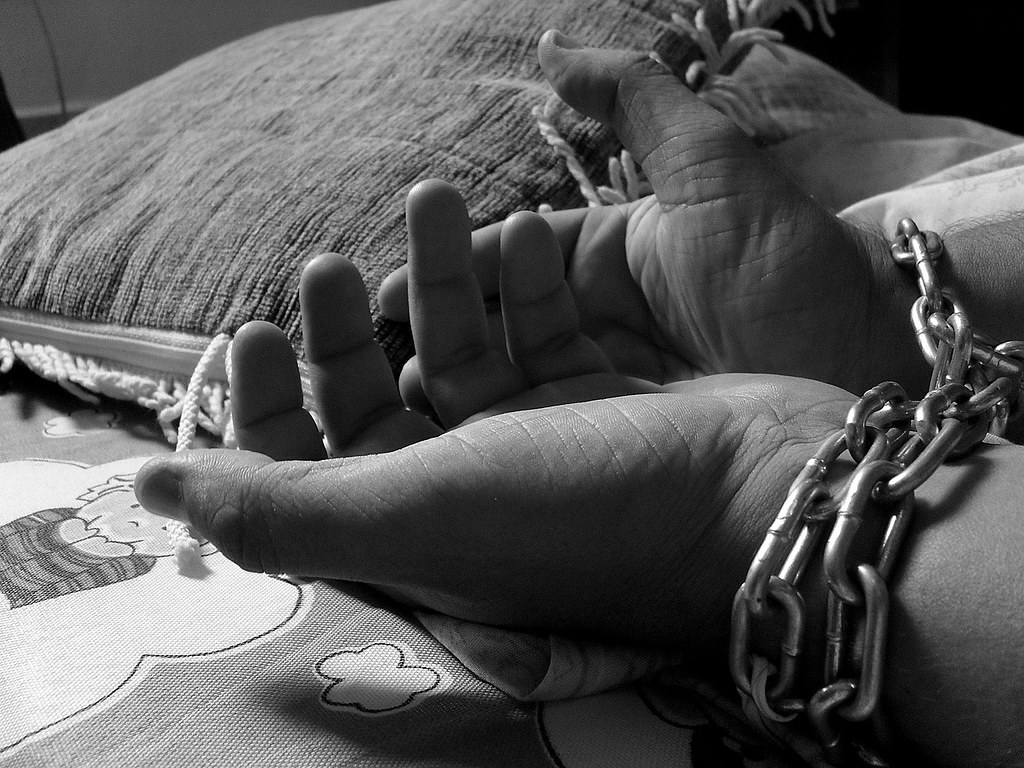We were a small group of Jews traveling in Uzbekistan, a predominantly Muslim country. Our tour group had originally included nine others who dropped out of the trip after war started between Israel and Hamas, because they did not feel comfortable being in a Muslim country. However we felt safe and entirely welcome. (All these people wanted to take picture with us!)
We spent two Shabbatot in Uzbekistan.
The first Shabbat was in Bukhara. The men in our group attended Friday services (we had been told earlier in the day by the Rabbi that women do not attend services on Friday).
Afterwards we all made our way for Shabbat dinner to the home of a Muslim family who specializes in cooking kosher meals for Israeli tour groups. (more…)
I was sorry to be missing the Shomrei Purim celebrations. But I was looking forward to celebrating Purim in another country.
We met with Rabbi Abram Ishakov the day before Purim, on Friday. Rabbi Abram is the rabbi of the synagogue in Bukhara, Uzbekistan, a Jewish community of about 100 people. (more…)
We love soup in the winter. However, many soups take 2-3 hours to cook and I don’t always leave myself enough time to make the soup to have for dinner the same day. These are a few soups that take an hour or less to prepare.
(more…)
The notion of hardening the heart occurs 20 times in the book of Exodus.
Ten of these occurrences state either that Pharoah hardened his [own] heart (8:28, 9:34) or say that Pharoah’s heart hardened, suggesting that this was something that Pharoah did on his own (7:13, 7:14, 7:22, 8:11, 8:15, 9:7 , 9:35). The other ten occurrences attribute the heart hardening to God (4:21, 7:3, 9:12, 10:1, 10:20, 10:27, 11:10, 14:4, 14:8, 14:17).
The idea that God intentionally hardened Pharoah’s heart has always troubled me. Why would God do that? And how, if God made this happen, can we blame Pharoah and hold him accountable for his actions? (more…)

